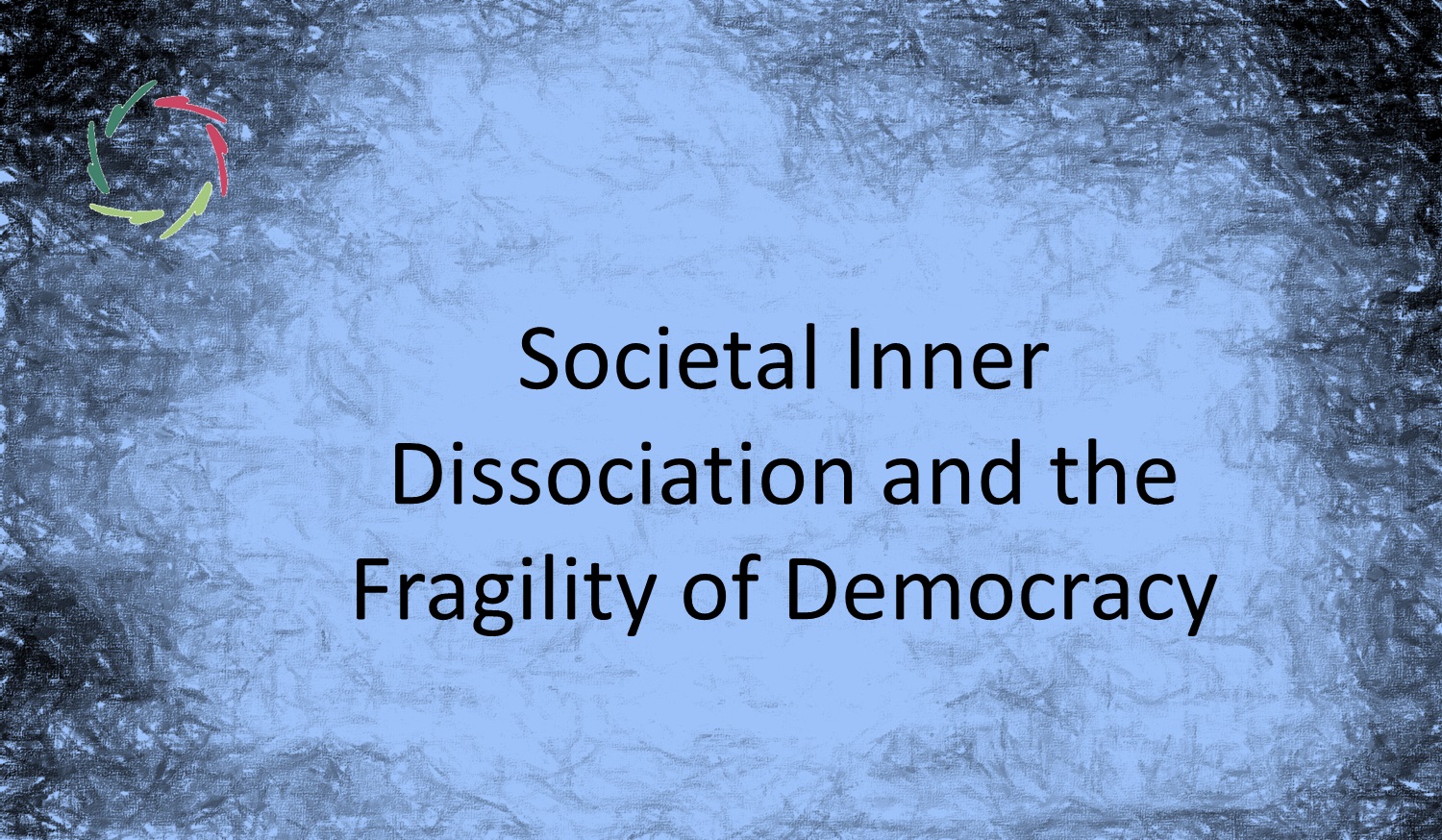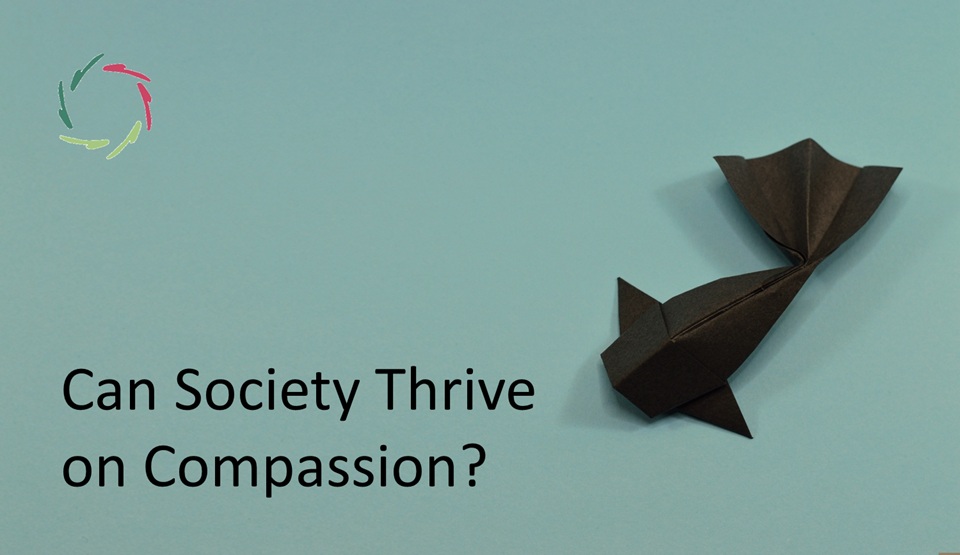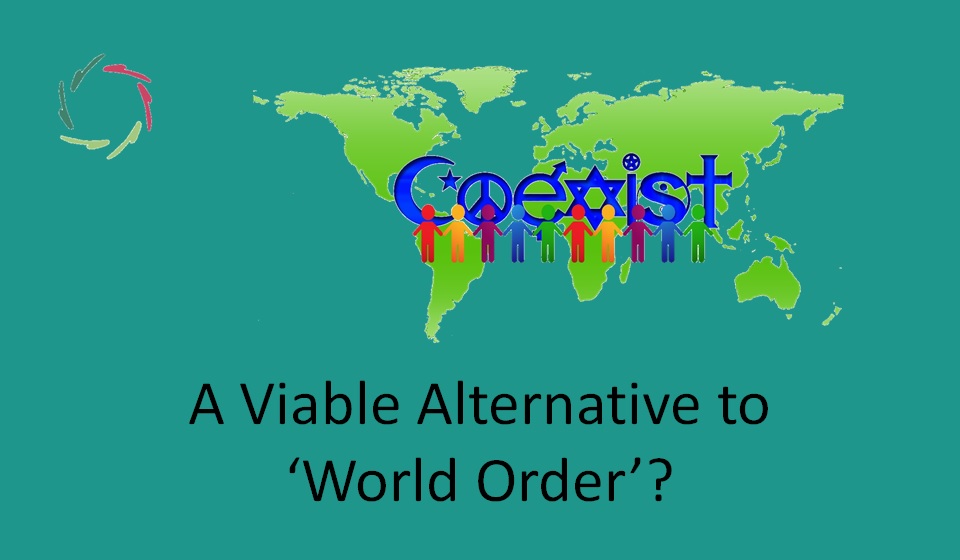Societal Inner Dissociation and the Fragility of Democracy

Democracy, as a system of governance, relies on a collective commitment to shared values and norms, where the populace feels connected to and invested in the democratic process. However, Societal Inner Dissociation (SID) undermines this foundation.
As SID spreads, democracy becomes increasingly fragile, vulnerable to authoritarianism and polarization. This blog is part of the *SID* series. Please read the primary blog of this series for a basic understanding of Societal Inner Dissociation (SID).
The role of SID in democratic erosion
SID fosters a deep disconnect between individuals and their inner values, as well as between citizens and the broader society. When individuals experience SID, they often feel disengaged from societal structures, including the political system. This disconnection can lead to political apathy, where civic engagement dwindles and public discourse becomes shallow. In a democracy, such apathy undermines the system’s legitimacy and effectiveness.
SID can drive individuals towards extreme ideologies. Feeling disconnected from mainstream political discourse, some individuals may gravitate towards the fringes, where they find clear, absolutist answers to complex societal issues. This extremism polarizes the political landscape. Citizens feel increasingly alienated from the institutions meant to serve them. This erosion of trust paves the way for populist leaders who exploit societal dissociation, promising quick fixes while undermining the checks and balances essential to democracy.
Polarization and fragmentation
SID drives individuals into ideological silos. This echo chamber effect polarizes political discourse, making it difficult for different sides to find common ground. As the middle ground shrinks, politics becomes a battleground of extremes, eroding the spirit of compromise and collaboration that democracy requires.
Different segments of society begin to live in separate realities, informed by disparate sources of information that often contradict each other. This fragmentation weakens the sense of a shared public sphere without which democracy struggles to function effectively, as consensus becomes nearly impossible.
Threats to democratic norms
The weakening of democratic norms is one of the most concerning consequences of SID. As SID weakens the ties between citizens and democratic institutions, societies become more vulnerable to authoritarianism. Authoritarian leaders exploit the fear, uncertainty, and disconnection fostered by SID, offering simplistic, strongman solutions to complex problems. In such environments, the rule of law, civil liberties, and other democratic norms are at risk as citizens, driven by fear and disillusionment, may trade freedom for the promise of security.
Citizens become more focused on their immediate interests and less on the broader societal good. As democratic norms weaken, the integrity of the democratic system is compromised, leading to a gradual slide toward illiberalism or even authoritarian rule.
Strengthening democracy
Addressing SID is crucial for strengthening democracy. Equally, one of the most effective ways to counteract SID is by fostering civic engagement. Encouraging citizens to participate in the democratic process – whether through voting, community involvement, or public discourse – helps rebuild the connections between individuals and society. Educational initiatives that emphasize the importance of civic duties and the value of democracy can reawaken a sense of responsibility and belonging among citizens. Also, media literacy programs – directly to related critical thinking – can empower citizens to critically evaluate the information they consume, reducing the impact of echo chambers and the fragmentation of public opinion.
Creating inclusive communities where diverse voices are heard and respected is vital for reducing the fragmentation caused by SID. Initiatives that promote dialogue and understanding between different societal groups can help bridge the divides that SID creates.
Strengthening democratic institutions includes ensuring transparency, accountability, and responsiveness in governance. Reforms that enhance these qualities can help restore public trust and reduce the appeal of populist, authoritarian alternatives.
True engagement requires more than just voting—it requires a sense of ownership and connection to the democratic process.
In Short
Democracy is inherently fragile, especially in the face of SID. To protect and strengthen democratic systems, it is crucial to address the underlying dissociation within societies. We all have a role in this ― whether by engaging more deeply in our communities, holding our institutions accountable, or simply questioning the narratives we encounter daily. By doing so, we can create a more engaged, integrated, and resilient democratic society.
Lisa is ready for all personal coaching ― of course, without manipulating anyone.


